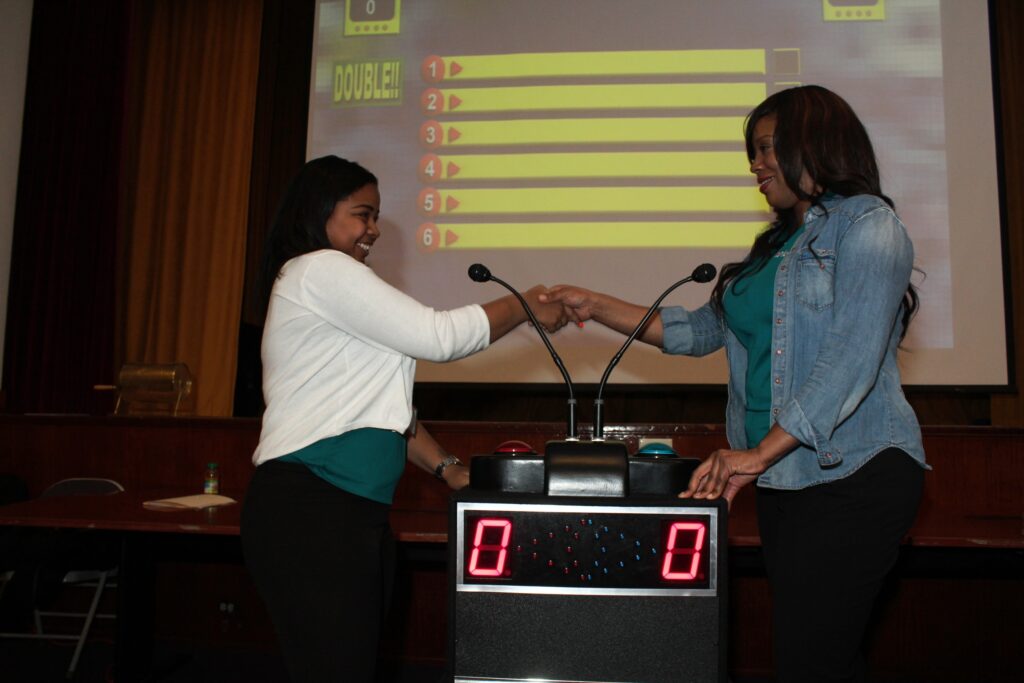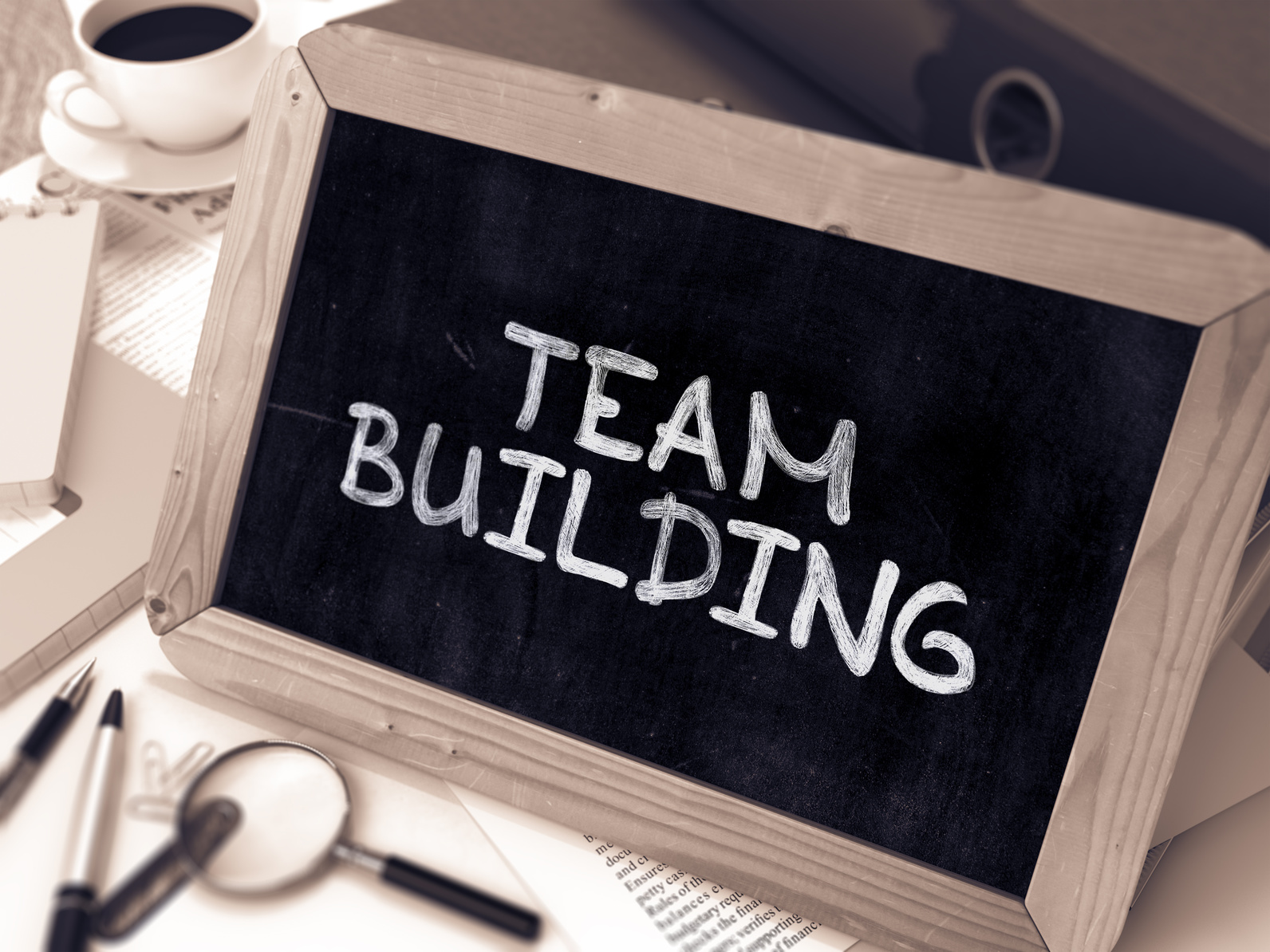As a team leader, building relationships with your team members is essential for a harmonious and productive work environment.
Face to face team building activities can help you create stronger relationships with your team members and boost team bonding.
These activities can foster deeper connections, enhance overall team dynamics, and improve communication.
In addition, these exercises allow team members to interact with each other in a relaxed environment, getting to know one another and discovering each other’s strengths and weaknesses.
Through these games and exercises, team members learn to work together, communicate better, and trust each other more.
If you want to achieve better team dynamics and enhance team bonding, face to face, in person team building activities are a great place to start.
Learn more about the benefits of relationship building activities in the sections below.
Key Takeaways
- Face to face team building activities can foster deeper connections and boost team bonding.
- Effective team communication can enhance overall team dynamics and promote team synergy.
- Trust-building exercises, team building workshops, and relationship-building activities can aid in the development of interpersonal skills and team collaboration.
- Leadership plays a significant role in fostering relationship building and enhancing team dynamics.
- Sustaining strong relationships within the team requires continued team bonding and engagement in relationship building activities for long-term success.

employee-engagement-game-show-idea
The Importance of Relationship Building Activities
Relationship building activities play a crucial role in team development, and their significance should not be underestimated.
Engaging in various trust-building exercises can contribute to the development of interpersonal skills, leading to stronger connections among team members, and ultimately, a more efficient and productive team dynamic.
Interpersonal skills development lays the foundation for successful collaboration within the team, creating a harmonious work environment.
By engaging in relationship building activities, team members can develop a deeper understanding of each other’s strengths and weaknesses and build trust to work toward common goals.
“Without good relationships, it’s no fun to work.” – Nancy Dubuc
Interpersonal relationships also foster effective team communication, promoting transparency, and open dialogue, which only strengthens the team dynamic. For a cohesive team, effective communication is vital, and trust is the foundation for that communication.
Through trust-building exercises and interpersonal skills development, team members can enhance their ability to communicate effectively, leading to greater team synergy and an overall stronger team dynamic.
Enhancing Team Communication through Face to Face Interaction
Effective team communication is essential in enhancing team dynamics and promoting overall team synergy.
One of the most effective ways to foster strong communication among team members is through face to face interaction.
When team members communicate in person, they can better understand each other’s non-verbal cues, tone, and body language, leading to more effective and efficient communication.
Face to face interaction can help team members build trust and improve their ability to work collaboratively.
When team members engage in face to face communication, they can resolve conflicts, brainstorm ideas, and make decisions more effectively. This results in a more cohesive team, better work results, and increased productivity.
To enhance team communication through face to face interaction, team building activities that encourage open dialogue can be particularly helpful.
Tabletop discussions or debate exercises are excellent tools for this. These exercises allow team members to express their opinions and perspectives while giving others the opportunity to listen and understand.
“It’s not what you say; it’s how you say it. And when you say it in person, you can not only add context but also ensure that what you say is understood in the way you intended it to be.” – J. Walter, Team Communication Expert
Effective Communication Strategies
Below are some effective communication strategies that can help enhance team dynamics:
- Active listening skills. Encourage team members to listen to each other without judgment or assumption.
- Using clear and concise language. Encourage team members to communicate with clarity and brevity, avoiding jargon or complex terms.
- Creating an open-door policy. Encourage team members to approach one another with questions or concerns, promoting a culture of transparency and accessibility.
- Building in time for feedback. Providing regular feedback can help team members better understand their strengths and areas for improvement, leading to better communication and collaboration.
By implementing these strategies and engaging in face to face communication, team members can foster stronger relationships, enhance team dynamics, and promote overall team synergy.
Got Games? PRESS PLAY! #teambuildingfun #gamesatwork
![]()
Team Leaders! Book a live game show experience today!
Contact us for further details.
We come to your office, venue or off-site location..
For Immediate assistance by text – 917-670-4689
No deposit required. 5-star rated on google.
Team Building Workshops for Relationship Building
Team building workshops are a great way to foster stronger connections and collaboration among team members.
These workshops offer a range of activities and exercises that are designed to build trust and enhance communication, helping to create a more harmonious working environment.
Through team building workshops, you can gain valuable insights into your team’s strengths and weaknesses, and develop strategies to improve team dynamics.
Some common activities and exercises in team building workshops include:
| Activity | Purpose |
|---|---|
| Trust Building Exercises | To build trust and improve communication |
| Problem-Solving Activities | To develop problem-solving skills and teamwork |
| Collaboration Exercises | To encourage collaboration and synergy within the team |
By participating in team building workshops, you can improve your team’s ability to work together effectively, which can have a positive impact on overall team performance.
Furthermore, the relationships built during these workshops can translate into more productive and enjoyable work relationships throughout the day-to-day operations of your business.

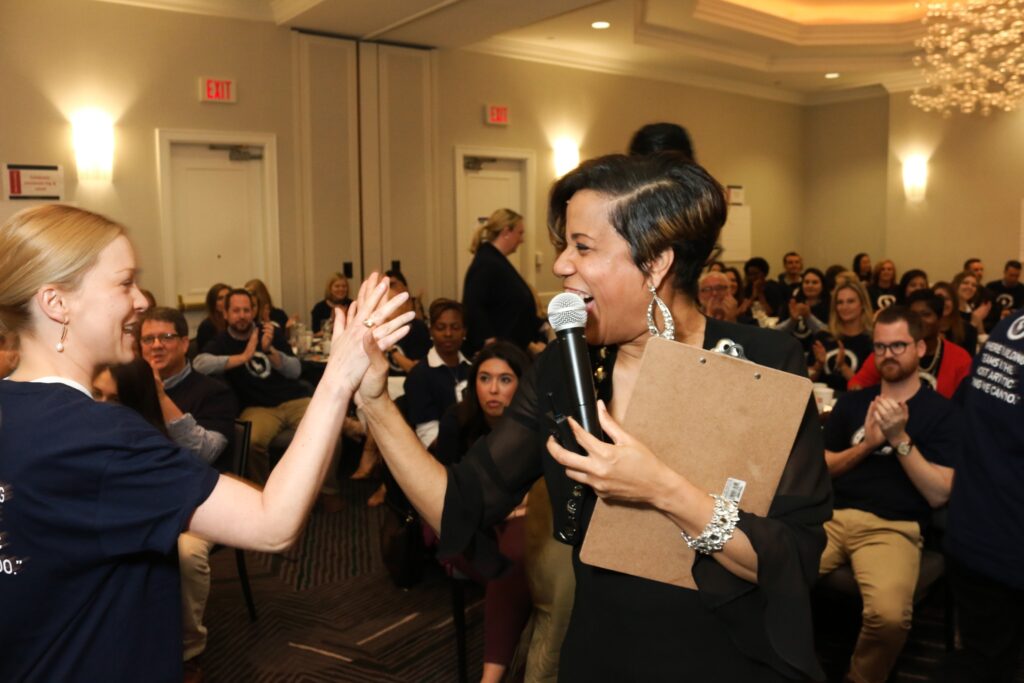
stay motivated at work – fun team bonding exercises
Building Trust and Cooperation within the Team
Trust and cooperation are two key ingredients that make a team function effectively. To nurture stronger relationships and create a positive team dynamic, it is essential to engage in trust-building exercises that enhance team bonding and cooperation.
Stronger connections fostered through team bonding activities lead to enhanced team dynamics and improved communication, which ultimately contribute to the overall success of the team.
Importance of Trust Building Exercises
Trust building exercises are a crucial component of developing trust and cooperation within the team. These exercises encourage team members to work together, rely on each other’s strengths, and develop an understanding of their individual weaknesses.
Through these activities, team members can build trust and reduce negative dynamics such as mistrust, resentment, and even conflict.
One example of an effective trust-building exercise is the rope game, where team members are required to navigate an obstacle course while being securely tied together with a rope.
This challenge requires team members to communicate and rely on each other’s strengths to overcome the obstacles.
Enhancing Team Dynamics through Team Bonding
Team bonding activities are also essential in building trust and cooperation within the team. These activities create an opportunity for team members to interact outside of the workplace and foster stronger interpersonal connections.
The stronger the connections, the more likely team members are to work collaboratively, effectively, and seamlessly towards a collective goal.
Creating a Positive Team Dynamic
A positive team dynamic is critical to a team’s success. It makes team members feel they are part of a cohesive and supportive group. Trust-building exercises and team bonding activities play a crucial role in creating this positive dynamic.
To sum it up, trust building exercises and team bonding activities are essential in enhancing team dynamics and creating a positive team culture.
These activities foster stronger connections among team members, encouraging cooperation and trust. Thus, it is imperative to incorporate these exercises regularly to keep the team functioning at its highest potential.

boost-staff-morale
Developing Interpersonal Skills for Stronger Connections
Interpersonal skills refer to the ability to communicate effectively and build relationships with others. Developing these skills is crucial for building stronger connections within a team.
By enhancing interpersonal skills, team members can communicate more effectively, understand each other’s perspectives, and work collaboratively towards common goals.
Some effective relationship building activities for developing interpersonal skills include:
| Activity | Objective |
|---|---|
| Active listening exercises | To improve communication and understanding |
| Role-playing scenarios | To develop empathy and understanding of different perspectives |
| Positive feedback sessions | To promote a supportive and collaborative team environment |
Remember that developing interpersonal skills is an ongoing process that requires consistent effort and practice. Encouraging team members to participate in relationship building activities can help foster stronger connections and improve overall team dynamics.
Fostering Collaboration through Team Building Exercises
Team building exercises play a crucial role in fostering collaboration and enhancing team dynamics. These exercises are designed to encourage team members to work together towards shared goals and to strengthen relationships.
Through a variety of activities, team bonding and trust are developed, leading to increased confidence and communication within the team.
Team building workshops offer a range of exercises and activities that are tailored to the needs of each team. Such workshops provide an ideal environment for teams to bond and work together in a controlled environment to achieve a common goal.
Some popular team building exercises that enhance collaboration and team dynamics include:
- Scavenger hunts and treasure hunts: These exercises develop team problem solving, decision making, and communication skills among team members.
- Escape room challenges: Players must solve puzzles and find clues to escape a locked room, promoting teamwork, communication, and critical thinking.
- Team-building games: Such games encourage team members to work together towards a common goal, developing trust and enhancing communication skills.
By participating in team building exercises, team members learn to work cooperatively and collaboratively, enhancing overall team dynamics.
The bonds and connections developed during these exercises carry over into day-to-day work, contributing to a positive and productive work environment.
“Teamwork is the ability to work together toward a common vision. The ability to direct individual accomplishments toward organizational objectives. It is the fuel that allows common people to attain uncommon results.” – Andrew Carnegie
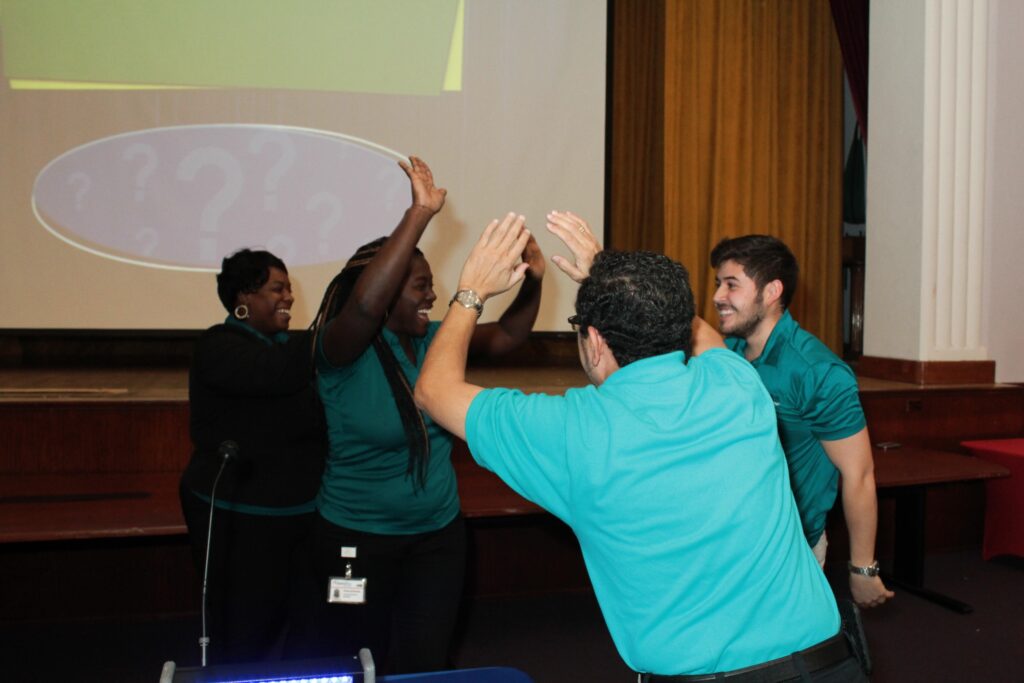
Face-2-Face Team Building to Overcome Communication Barriers
Effective team communication is a vital component of successful team dynamics, but communication barriers can hamper progress and hinder relationships among team members.
Fortunately, trust building exercises can be an effective means of fostering open communication and overcoming these obstacles.
One such exercise involves pairs of team members sitting back to back with one another and attempting to recreate a specific image or object using only verbal directions from one team member to the other.
This exercise helps participants practice attentive listening, clear communication, and developing trust in their partner.
Another effective exercise involves blindfolding one team member and having them navigate through a maze that has been verbally described to them by their teammates.
This exercise allows participants to enhance communication and trust while also improving their problem-solving skills.
By implementing these types of trust-building exercises, team leaders can enhance team communication and ultimately drive greater success for their organization.
Strengthening Bonds through Team Building Retreats
Team building retreats are a great way to strengthen bonds among team members and enhance team dynamics.
Through various relationship building activities and team building workshops, participants can learn to communicate more effectively, collaborate more efficiently, and build trust and mutual respect with one another.
One popular activity at team building retreats is the trust fall exercise, where a participant stands on a raised platform and falls backwards, trusting their colleagues to catch them.
This exercise can help build trust and enhance communication among team members. Other activities can include problem-solving challenges, group brainstorming sessions, and outdoor adventure activities like zip-lining or rafting.
By participating in team building retreats and workshops, team members can form connections with one another and better understand how to work together effectively. This translates into better team dynamics back at the workplace, leading to improved productivity and overall success.
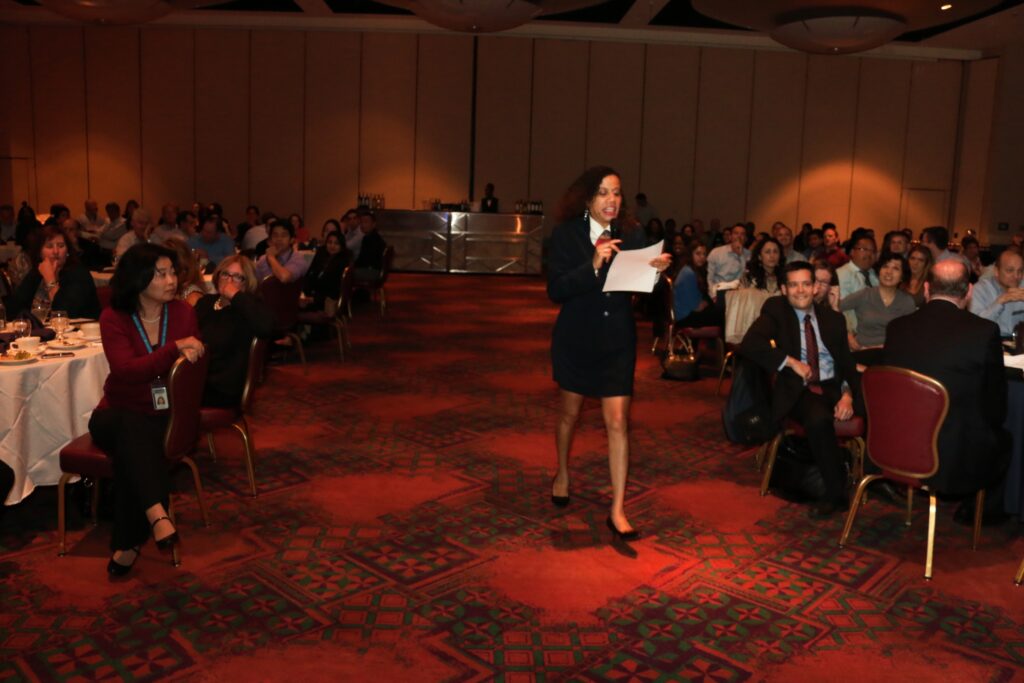
women-in-leadership
The Role of Leadership in Relationship Building – Positive Work Environment
When it comes to team bonding and enhancing team dynamics, effective leadership plays a crucial role. Leaders who invest time and effort into trust building exercises and relationship building activities create a positive working environment that fosters strong connections between team members.
Good leaders understand the importance of team bonding and make it a priority to encourage participation in team building workshops and retreats. By promoting collaboration and synergy within the team, leaders strengthen team dynamics and encourage trust between team members.
One effective technique for leadership in relationship building is to lead by example. When leaders show a willingness to participate in trust building exercises and relationship building activities themselves, they set an example for the rest of the team to follow.
Leaders who prioritize team bonding and enhancing team dynamics reap the benefits of a harmonious and productive working environment.
By encouraging trust and building stronger connections between team members, leaders create a culture of positivity and cooperation that can lead to long-term success.
Leadership plays a significant role in fostering team bonding, enhancing team dynamics, and promoting the use of trust building exercises.
By leading by example and prioritizing relationship building activities, leaders create a positive working environment that strengthens bonds between team members, leading to a more productive and successful team.
Measuring the Impact of Team Building on Relationships
Team bonding activities, workshops, and retreats all have the potential to enhance team dynamics and relationships within the team. But how can you measure the actual impact of such efforts?
One effective method is to conduct surveys before and after team building events to gauge changes in team communication, trust, and cooperation.
Additionally, monitoring team performance metrics such as productivity, efficiency, and employee engagement can provide insight into the effectiveness of team building efforts.
It is also crucial to consider the impact of sustained team building efforts over time. Creating a positive team culture that prioritizes relationship building through ongoing activities and engagement can lead to long-term success.

reconnecting-teams
Sustaining Strong Relationships for Long-Term Success
Building stronger relationships and team bonding among team members is crucial for a harmonious and productive working environment.
However, it’s not a one-time effort, and sustaining strong relationships requires continuous engagement in relationship building activities.
Encourage your team to participate in regular team building workshops and retreats to maintain the momentum of team bonding.
These activities not only foster stronger connections but also provide a break from the daily grind, promoting a refreshed and motivated team.
It’s also essential to incorporate relationship building activities into everyday work processes. For example, allocate time for team check-ins and encourage open communication during meetings.
Promote a culture of team bonding by organizing team events outside of work, such as team lunches or after-work activities.
Stronger relationships within a team lead to enhanced team dynamics, higher levels of trust, and more effective communication. This translates to better teamwork, increased productivity, and ultimately, long-term success.
In conclusion, sustaining stronger relationships and team bonding requires continued engagement in relationship building activities both inside and outside of work.
As a leader, prioritize team bonding, and encourage your team to participate in regular team building workshops and retreats.
By doing so, you can create a harmonious and productive working environment that leads to long-term success for your team and organization.
FAQ – Face-2-Face Team Building

frequently asked questions
What is the purpose of face to face team building activities?
Face to face team building for stronger relationships aim to enhance overall team dynamics and communication.
How does face to face interaction improve team communication?
Face to face interaction facilitates effective team communication, leading to enhanced team dynamics and promoting overall team synergy.
What are the benefits of team building workshops in relationship building?
Team building workshops provide opportunities for relationship building among team members and offer various activities and exercises that promote stronger connections and collaboration.
How do team building exercises foster collaboration within a team?
Team building exercises promote collaboration and strengthen team dynamics by encouraging cooperation and synergy among team members.
What strategies can be used to overcome communication barriers within a team?
Overcoming communication barriers within a team can be achieved through various strategies, including trust building exercises that improve communication and enhance overall team dynamics.
What are the benefits of team building retreats in strengthening bonds among team members?
Team building retreats offer relationship building activities and workshops that contribute to stronger bonds and improved team dynamics among team members.
How does leadership contribute to relationship building within a team?
Leadership plays a crucial role in fostering relationship building within a team, as effective leadership techniques can enhance team dynamics and encourage trust among team members.
How can the impact of team building activities on team relationships be measured?
The impact of team building activities on team relationships can be measured through effective methods that assess team bonding and enhancement of team dynamics.
For more information on organizing professional team-building events, visit It’s PlayTyme Game Shows or call 201-357-2979.

